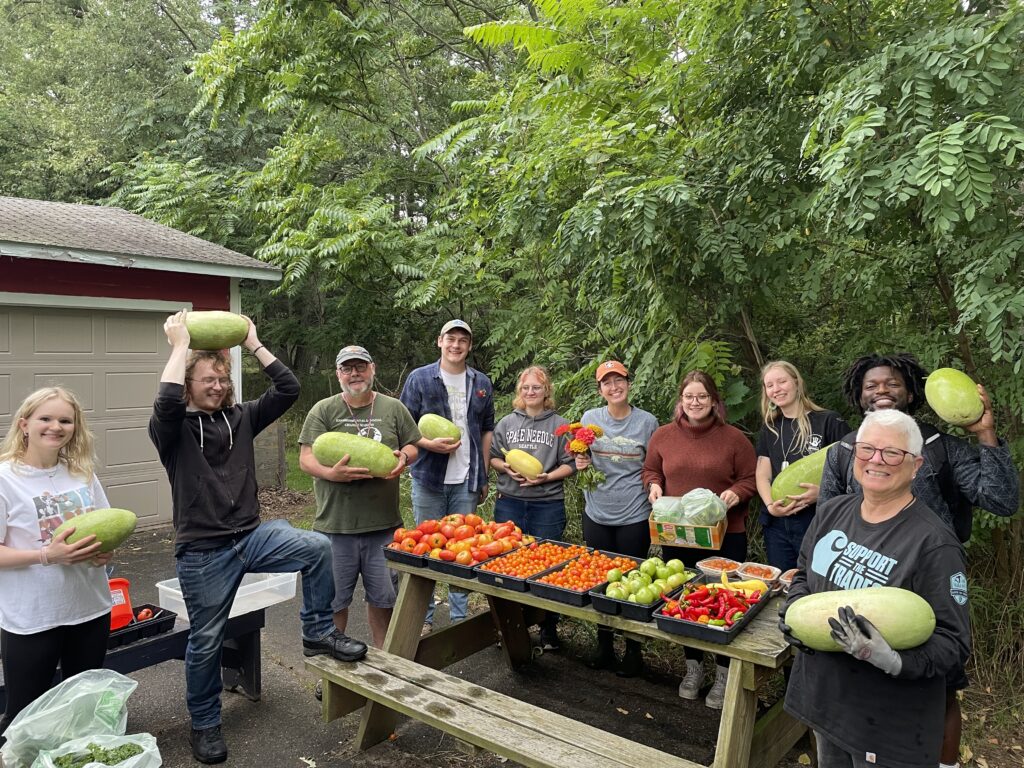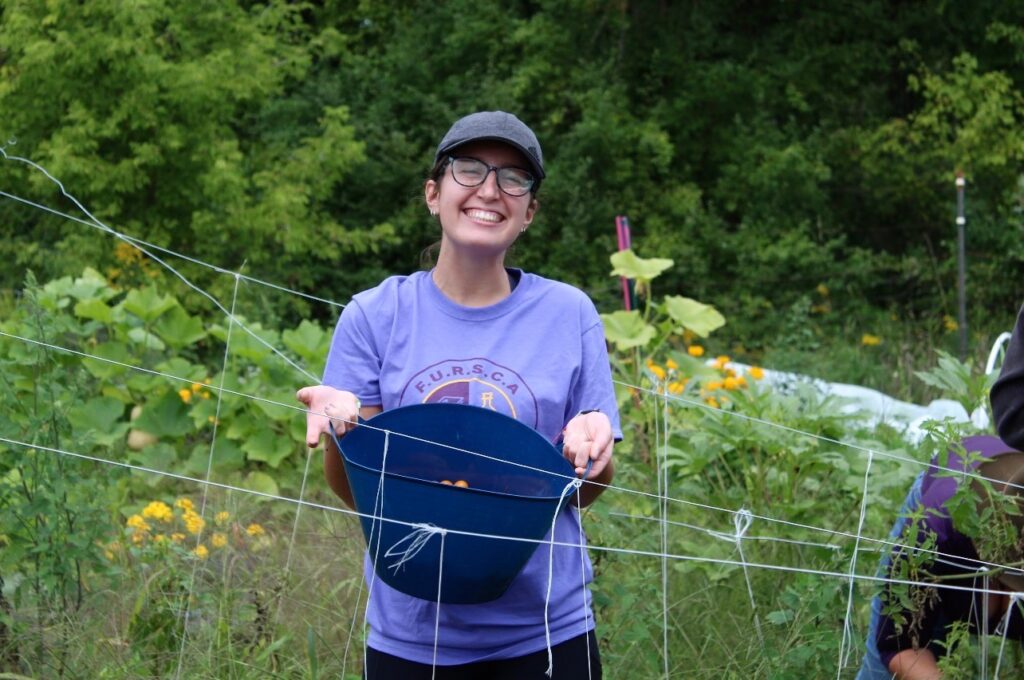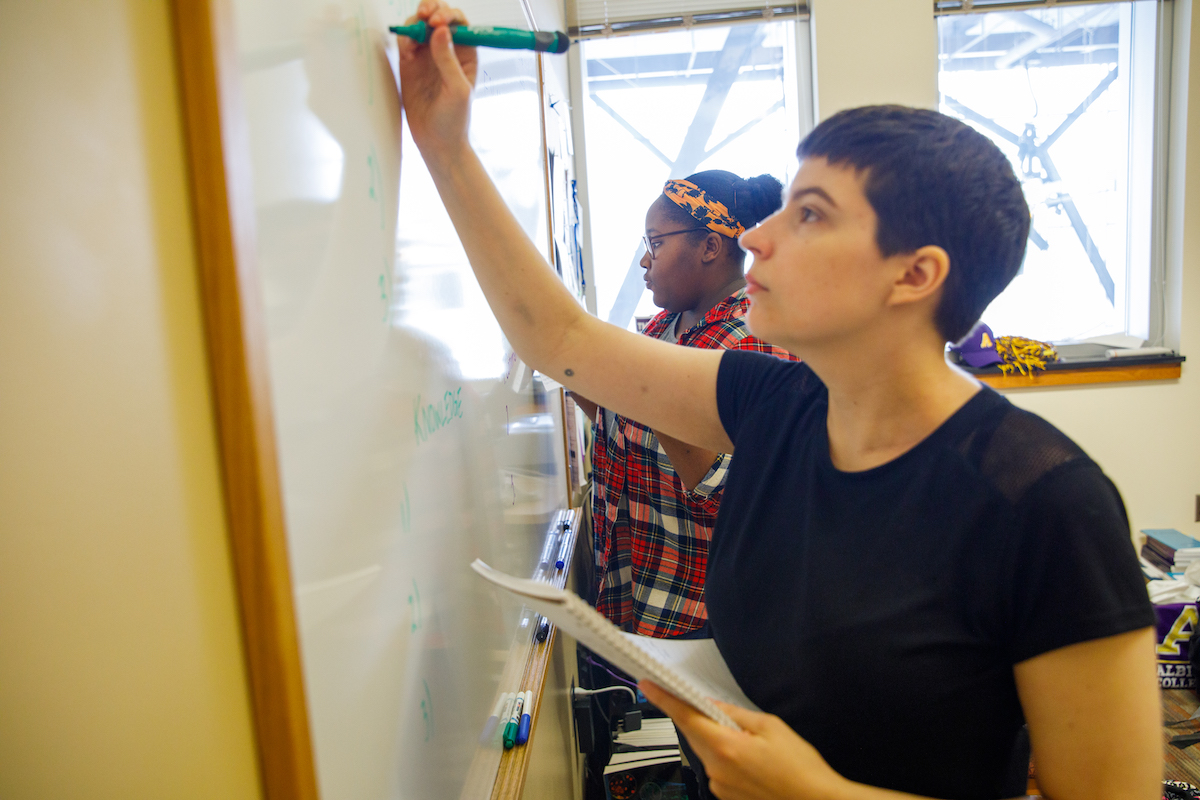Experiential certificates provide students with skills to make an immediate impact in sustainability
Related Programs
Related Posts
Connect With Us
July 9, 2024
This spring, four seniors earned Center for Sustainability and the Environment (CSE)-sponsored experiential learning certificates. Experiential Certificates are intentionally guided learning tracks designed to provide innovative, specialized co-curricular opportunities to integrate students’ individual passions and professional goals into their academic journey.
“The CSE certificates are incredible value-added opportunities for students entering the workforce or continuing on to graduate school in the environmental sector,” said Thom Wilch, professor of earth and the environment and CSE faculty director. “The blending of real-world experiential learning gained from internships, work, and focused projects with professional development and community engagement prepares students to leave Albion ready to contribute to their organizations.”

Uma Shuford-Williams ‘24, environmental studies and earth science double major and management minor, completed the Sustainability and Environmental Education and Advocacy Certificate. Paige McDowell ‘24, geology major and geographic information systems minor, earned the Sustainability and Environmental Research Certificate.
Abigail Coleman ‘24, psychological science and environmental studies double major, completed the Sustainability and Environmental Project Leadership Certificate. Ashlynn Reed ‘24, English and environmental studies double major, earned the Sustainability and Environmental Education and Advocacy Certificate and Sustainability and Environmental Research Certificate. Ashlynn will put both certificates to good use this year in her new role as interim sustainability coordinator for CSE.

CSE offers three experiential certificate tracks for students to bridge their academic, professional, and personal passions with real-time application and practice. The Sustainability Education and Advocacy Certificate provides the foundation for being an effective environmental and sustainability advocate. Students pursuing the Sustainability Project Leadership are guided to think critically and creatively in their design and implementation of a sustainability project through cross-campus and community partnerships. The Sustainability and Environmental Research Certificate attracts a wide variety of majors through individualized opportunities to engage in research and present in professional settings. A student’s original research is strengthened with professional development that includes career exploration and interdisciplinary learning on the intersection of the natural world with social justice and ethics.
Each certificate requires 400 hours of experiential learning work including 100 hours of community engagement, 100 hours of professional development, three connected classes, and an integrative reflection. Immersive opportunities including field trips, working with activists and field experts, developing communication skills, and community partnerships guide students in understanding the social impact of sustainability in various sectors.
All four students are members of CSE, which offers various support along the academic journey of its students, including experiential certificate advising. While there are many benefits to membership in a Center or Institute, membership is not a requirement to earn an experiential certificate.
